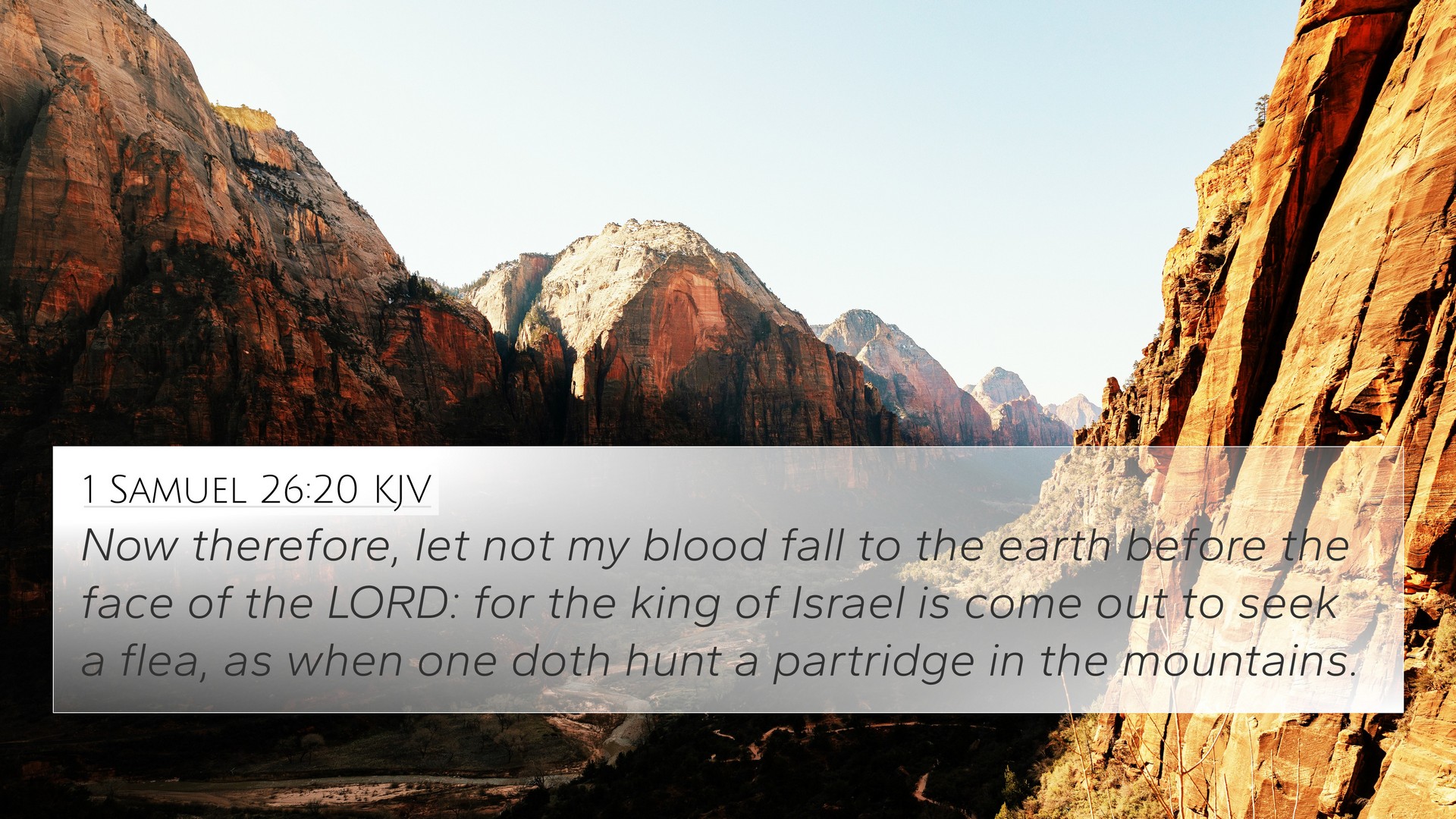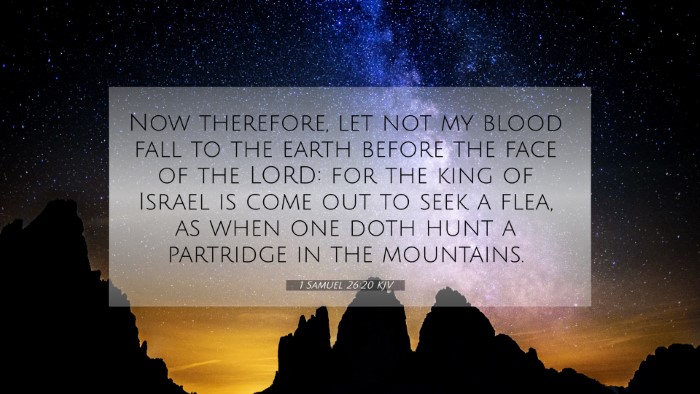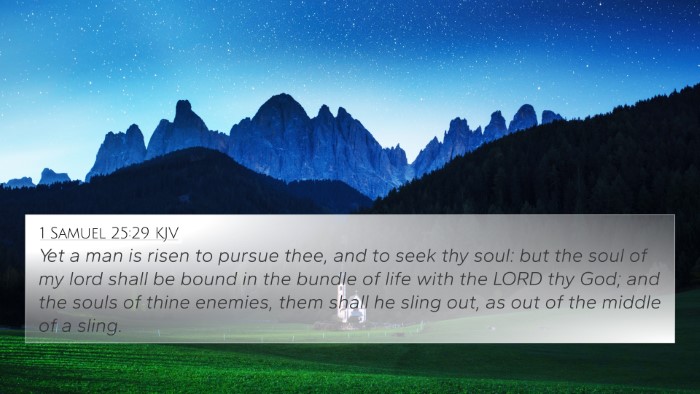Understanding 1 Samuel 26:20
In this poignant verse of 1 Samuel 26:20, David expresses his deep concern for the well-being of his people and the implications of his actions. The verse reads:
"Now therefore, let not my blood fall to the earth before the face of the Lord; for the king of Israel is come out to seek a flea, as when one doth hunt a partridge in the mountains."
Summary of Insights
This verse highlights several significant themes that can be understood through various public domain commentaries, including those by Matthew Henry, Albert Barnes, and Adam Clarke. Here’s a summarized interpretation of the verse:
- David's Plea for Mercy:
David appeals to Saul, expressing that his pursuit is excessive and unjust, likening himself to a mere flea in comparison to the king's overwhelming power. This analogy reveals David's humility and sense of justice.
- Recognition of Divine Sovereignty:
David's statement about his blood falling before the Lord denotes an understanding of God's authority over life and death. David is aware that any harm to him would be against God’s purpose.
- The Futility of the Pursuit:
By comparing himself to “a partridge in the mountains,” David implies that Saul's hunt is fruitless, as chasing such insignificant prey is not worthy of a king's effort. This highlights the absurdity of Saul's actions.
Thematic Connections
This verse can be understood within several broader Biblical themes, fostering connections between various scriptures:
- David and Saul's Relationship: The conflict between David and Saul serves as a backdrop for understanding themes of betrayal, mercy, and divine justice throughout the Bible.
- Your Identity in Christ: Just as David recognizes his value before God, believers today are reminded of their worth and purpose despite adversities.
Bible Verse Cross-References
To deepen understanding, here are several Bible verses that relate to 1 Samuel 26:20, establishing connections across scripture:
- 1 Samuel 24:11: "Moreover, my father, see, yes, see the corner of your cloak in my hand! For in that I cut off the corner of your cloak and did not kill you, know and see that there is neither evil nor rebellion in my hand." This verse reflects similar themes of mercy and respect between David and Saul.
- Proverbs 16:7: "When a man’s ways please the Lord, He makes even his enemies to be at peace with him." This speaks to David’s righteousness leading to divine favor, illustrating the broader theme of divine justice.
- 2 Samuel 1:14: "And David said to him, 'How was it you were not afraid to put forth your hand to destroy the Lord’s anointed?'" This verse shows David’s respect for God’s anointed leaders, emphasizing his deep reverence for God's authority.
- Psalm 26:9: "Do not gather my soul with sinners, Nor my life with bloodthirsty men."' This reflects David's desire for justice and his plea for deliverance from unjust persecution.
- Matthew 5:7: "Blessed are the merciful, For they shall obtain mercy." David's plea captures this principle of divine mercy that resonates throughout scripture.
- Romans 12:19: "Beloved, do not avenge yourselves, but rather give place to wrath; for it is written, ‘Vengeance is Mine, I will repay,’ says the Lord." Echoes the themes of leaving vengeance to God as David does in this narrative.
- 1 Peter 2:23: "Who, when He was reviled, did not revile in return; when He suffered, He did not threaten, but committed Himself to Him who judges righteously." Refers to Christ’s example of handling persecution, paralleling David's actions.
Tools for Bible Cross-Referencing
For those looking to explore these themes further, consider using:
- Bible concordance for locating key terms and their connections.
- Cross-reference Bible study methods for deeper analysis.
- Comprehensive Bible cross-reference materials to find thematic links across texts.
Conclusion: A Call to Reflection
1 Samuel 26:20 serves not only as a historical narrative but also as a rich source of theological and moral reflection. As we consider the implications of David’s words and his relationship with Saul, we learn valuable lessons about humility, reliance on God, and the importance of mercy.
Engaging in cross-referencing exercises enables us to see the intricate tapestry woven throughout scripture, pointing toward deeper truths and the character of God.







